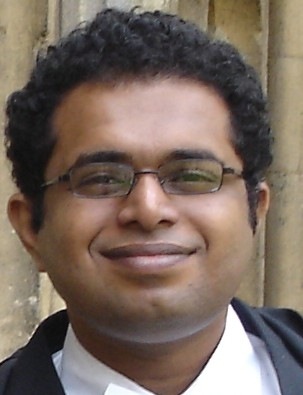
The Supreme Court is for the second time in its history attempting to create its own dedicated intellectual and institutional research unit with the appointment of NLU Delhi assistant professor Anup Surendranath to the post of deputy registrar (research).
Nalsar Hyderabad and Oxford alum Surendranath will be the first to hold such a post at the Supreme Court after Moolchand Sharma held it around 30 years ago, appointed by then Chief Justice of India (CJI) PN Bhagwati, while Nalsar dean Amita Dhanda was assistant registrar at the court.
Surendranath, who started working as an employee at the Supreme Court on Monday, joined the post on deputation from NLU Delhi for one year, and will continue visiting the law school a few times a week in his capacity as assistant professor.
He told Legally India that his role involved personal research and intellectual assistance to the CJI, RM Lodha, and setting up a research unit at the Supreme Court and advising on institutional reform.
He said: “[The CJI] wants to very clearly lay down the foundation for these things. He is very clear that changes are necessary. There is great energy being provided to this initiative from his office. I think he is keen to lay down some strong foundation.”
Research unit
“There is no research pace at the [Supreme] Court [presently]. It is all done on an ad hoc basis,” commented Surendranath. He said that even though research roles at the court are presently filled by law clerks cum research assistants, they suffer from the limitations of being exposed to only specific cases and single judges, and are fresh graduates with limited experience and materials.
The research unit’s role would be to “think about various places in the court where a higher quality of decision making and adjudication can be useful”, he said. For instance, the case admission stage is a crucial stage for the Supreme Court, with which it is presently ill-equipped to deal with. The unit could work towards building a knowledge database that can give judges the authoritative basis to immediately say if a particular case is inadmissible because they are being asked to decide a fact-based, instead of a law-based, question, he said.
Institutional reform
“A lot of work has already been done [in this area] and I have to be careful that I am not reinventing the wheel. Being an outsider I have the advantage of not having subscribed to the established logic of the institution. The idea is to suggest how things can be done differently,” said Surendranath.
Surendranath would be looking at the multidisciplinary expertise needed to make the court’s institutional process, such as its filing systems, more efficient. He said that the court has given him the discretion to hire the professionals he needs to assist him, including lawyers, however he is currently studying and familiarising himself with the processes of the court as they exist.
threads most popular
thread most upvoted
comment newest
first oldest
first
anurag deep
associate prof.
ILI, New Delhi
This article shows the incredible personal achievement of Mr. Surendranath. He has toiled hard to achieve such a feat. Affixing his success on partly on Mr. Singh and his institution are an insult to such a man.
How is this reflective of excellent faculty at NLU Delhi? Isn't that a far fetched inference to draw from this limited, isolated, individual fact?
It is this sort of preemptive approach which I do not appreciate.
NLU Delhi and its people are poised for great things. My only point is that we should not make reckless conclusions not supported in logic.
this is hilarious. and i did go to NALSAR during the time RS was at the helm.
I found out some facts about this opening which is being 'celebrated' as a triumph for NALSAR, NLU delhi, Anup, ranbir singh , etc.
The selection criteria for this post lists this is a 'temporary' position to be filled on deputation basis for 1 year. It is listed as a post with pay band PB-2 which is equal to an inspector of police / section officer in civil bureaucracy. Thats one rung below state civil services, let alone the prestigous Group A all india services. Its really sad that such a bright faculty has succumbed to the lure of a 'supreme court' tag and accepted a job like this which no self-respecting lawyer from a well known law school like NALSAR and Oxford should hope to get into. In my view, being Asst Prof at NLU Delhi was far better
A well know law school like NALSAR??? Since when?
This job could have been given to a more experienced and senior academician.
The court could perhaps have considered somebody more senior for the job.
sounds like a congress-chamcha's statement .... would you work as a sweeper if President of India asked you ? Not me for sure. Izzat is more important than naukri
threads most popular
thread most upvoted
comment newest
first oldest
first